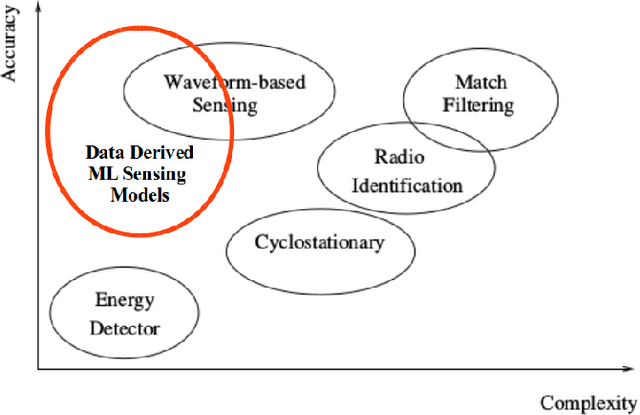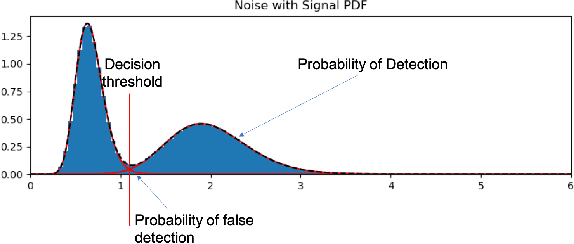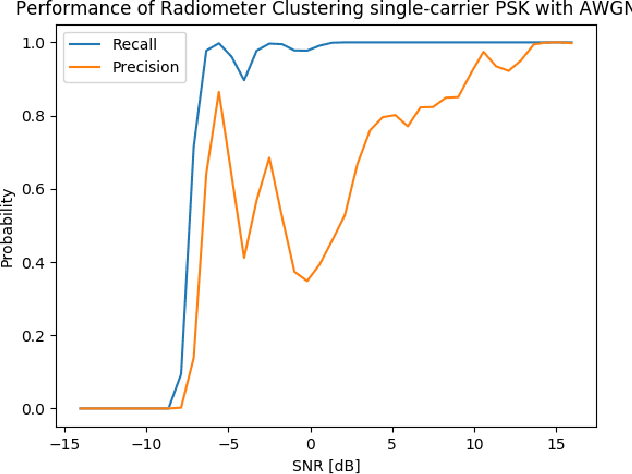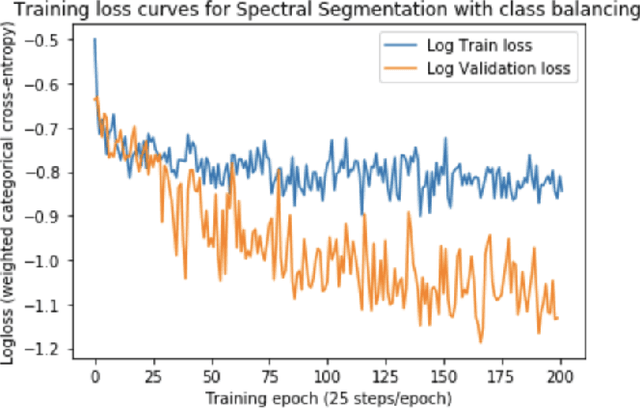Wideband Signal Localization with Spectral Segmentation
Paper and Code
Oct 01, 2021



Signal localization is a spectrum sensing problem that jointly detects the presence of a signal and estimates a center frequency and bandwidth. This is a step beyond most spectrum sensing work which estimates "present" or "not present" detections for either a single channel or fixed sized channels. We define the signal localization task, present the metrics of precision and recall, and establish baselines for traditional energy detection on this task. We introduce a new dataset that is useful for training neural networks to perform this task and show a training framework to train signal detectors to achieve the task and present precision and recall curves over SNR. This neural network based approach shows an 8 dB improvement in recall over the traditional energy detection approach with minor improvements in precision.
 Add to Chrome
Add to Chrome Add to Firefox
Add to Firefox Add to Edge
Add to Edge